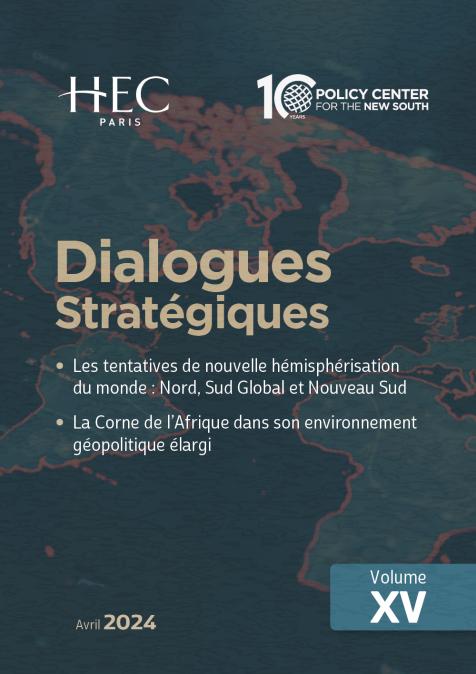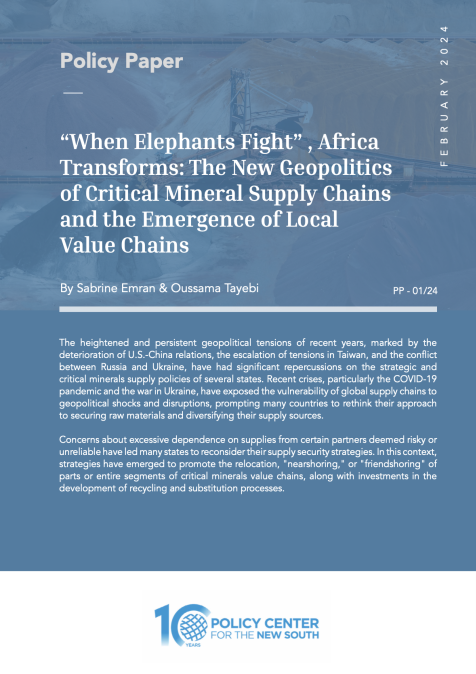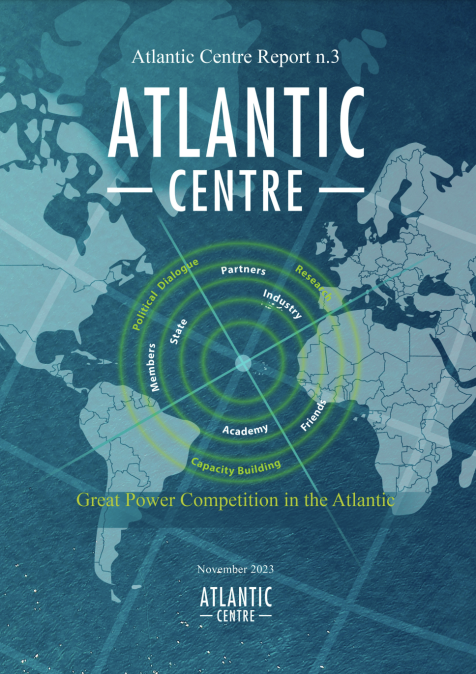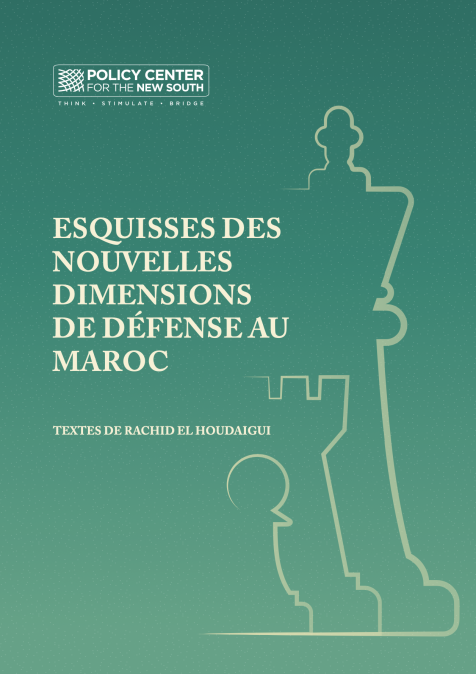Publications /
Opinion
Political Developments: Towards a Political Transition?
Countries in the Sahel are facing political changes that seriously affect the African continent at large. This blog attempts to give an overview of the recent political developments in the region before focusing on the ongoing challenges.
Starting 2011, Libya went through the Arab Spring protest leading to the current political deadlock. The escalation of violence combined with a rising death toll forced the international community to intervene on grounds of the Responsibility to protect. However, not thinking ahead of the intervention about Libya post-Kaddafi was one of the mistakes made by the international community. In fact, Kaddafi, the supreme guide, was embodying the State and his ousting led to total chaos in the country.
François Mauriac, a French novelist, wrote during the Cold War “I love Germany so much, I would love for there to be two”. For Libya’s lovers, ironically, the “good news” is that there are five. The country is currently fragmented and is controlled by five different polities, making the conflict-resolution difficult. Even more so that the official government only controls the east, a small province in the North West and the rest is beyond its control.
Morocco, in September 2015, hosted peace-talks in Skhirat under the auspices of the United Nations. It gathered Libya’s warring factions to reach an agreement aiming at forming a unity government and ending years of chaos in the country.
The Libyan crisis came with heavy consequences on countries like Mali, Niger, Nigeria and Mauritania. The conflict resulted in weapons and armed fighters flowing into northern Mali and helped fuel the extreme violence in the country. It also revived the Touareg rebellion, which triggered a military intervention by the Malian Government. It was followed by a military coup and the northern part of Mali was taken over by an armed islamist group which was demanding autonomy. In Mali, the situation is different and was characterized by a loss of state control starting January 2012, combined with an influx of islamist groups bearing arms and weapons.
Combined with the Azawad conflict, the whole country is still very fragile and divided between the North, (claimed by the Azawad in April 2012) and the South, controlled by the government. The Touaregs are also divided between rebels and Azawad partisans.
A few months later, in March 2012, the military carried out a coup d’état causing the takeover of the northern part of the country by islamists who were claiming their autonomy. As a consequence, the United Nations has put in place a new peacekeeping operation, the MINUSMA, in replacement of the MISMA, adding more African forces to the contingent.
The conflict factions gathered in Algiers to negotiate a peace agreement and to discuss the status of the Azawad. After 8 months of tough negotiations, an agreement was signed. However, it was rejected by the CMA (Coordination of movements of Azawad) which gathers four movements, on the ground that the agreement did not recognize crimes committed by the Malian State since 1963 in the Azawad territory.
In parallel, Côte d’Ivoire was witnessing increased violence due to the controversy around the presidential elections. On the one hand, Laurent Gbagbo, in power for 10 years, claimed victory in the elections and on the other hand, Alassane Ouattara, alleged to be the newly elected president. This led to a civil war where the pro-Gbagbo and pro-Ouattara were fighting each other. In total, over a thousand civilians were killed.
Moving on to Nigeria, in the middle of the Saheli-region, it is also facing serious threats especially in its northern part. Boko Haram, an islamist armed group, which recently pledged allegiance to the self-named “Islamic State”, destabilized the country with several attacks. When President Muhammadu Buhari came into office in May 2015, his priority was ousting Boko Haram from the country. Almost a year later, the group’s attacks reduced on the Nigerian continent. The attacks went from 270 in 2015 to 36 in 2016. However, the group is still very active in the neighboring countries such as in Cameroon and Chad.
In Burkina Faso, the country slowly recovered from a political transition. Blaise Compaoré became president after overthrowing Thomas Sankara in 1987. He then tried to amend the Constitution to allow himself to run for a fourth term. However, after mass protests around the country, the vote was cancelled and Compaoré ousted.
Surrounded by vulnerable countries, Niger finds itself at the crossroads of the security equation. With Mali on the West, Chad on the East, Libya in the North and Nigeria in the south, the country has to fight extremists on all fronts. In addition, Al-Qaida in the Islamic Maghreb (AQIM) constantly threatens to kidnap westerners in Niger, as it did in 2010 with some workers at Areva Niger.
Historical Vulnerability Faced with Violent Extremism
The Sahel region has a long history of vulnerability owing to dry land conditions, climate change as well as movements of people which resulted in setting up borders to establish new states. Those conditions add up to long periods of droughts, increasingly affecting population dependent on rain-fed agriculture. The rapidly growing population also plays a role in the Sahel’s human and food security. Malnutrition, extreme poverty and diseases are widespread in the region and lead to social insecurity. It is currently estimated that more than 17 million people are at risk of starvation in Western Sahel.
Natural resources, highly present in the region, attract the interest of both state and non-state foreign actors. Hence, Natural-resource-rich countries are often targets of strong competition when managing and exploiting their natural resources.
On the political side, the presence of nomadic people in a region where weak states have been created has exacerbated conflicts, particularly of ethnic nature. Furthermore, the fragility of states, especially in West Africa, made it difficult for governments to impose their sovereignty over their territories. Many of these territories are still out of the government’s control, which leaves room for extremist groups to proliferate. Those elements, combined with blurry state borders, resulted in a large number of people being internally displaced as well as refugees in the continent and outside of it.
Across the region, countries were facing violence caused by extremist groups up to now. In the Sahel, Al-Qaida in the Islamic Maghreb (AQIM) is present and very active. It is organized around 4 katibat (main units) and consists of 60% of Touareg movements.
Against this background, jihadist groups proliferated in the region. After the Malian military coup in March 2012, al-Qaeda in the Islamic Maghreb (AQIM) took over the northern part of the country together with two other jidhadist groups; the Movement for Unity and Jihad in West Africa (MUJAO) and Ansar Dine, a 5 years old Malian jihadist group. In January 2015, Mali witnessed the emergence of the Macina Liberation Front, an armed group disturbing the center of the country. The group aims at establishing an Islamic State in Mali and counts on its affiliation with Ansar Eddine to reach its goal. AQIM lately claimed responsibility over the Nampala attack on 5th of January, the Ténekou attack on the 16th of January as well as the Radisson Blu attack in Bamako on the 23rd of November. It conducts, almost on a daily basis, frequent attacks in northern Mali against civilians, members of the United Nations Multidimensional Integrated Stabilization Mission in Mali (MINUSMA), members of the Red Cross, members of the Barkhane operation and the Malian army. In light of the group’s evolution, many are questioning if it is not becoming the Malian version of Boko Haram.
Nonetheless, Chad has a military hand in Central Africa and particularly in Northern Nigeria. With Nigeria’s consent, it conducted several operations targeting Boko Haram’s strategic positions. Its contingent counted around 5,000 soldiers considered amongst the most experienced fighters in the region. Such involvement demonstrates how the issue is becoming a regional one. Although President Buhari claimed to win the fight over Boko Haram, the heaviest operation wasn’t conducted by him. Chad joined forces with Cameroon and Niger in the fight against the militant group. The country also provided a handhold to the French armed forces in the region.
Another issue that must not be ignored is urban terrorism. It exists through a system of allegiances pledged by autonomous groups to AQIM. Ansar Dine, a militant Islamist group in Mali, provides support to AQIM. In December 2015, another African jihadist group, Al-Mourabitoun, also pledged allegiance to AQIM. With its average of 150 fighters, Al-Mourabitoun is active in Algeria, Burkina Faso, Côte d’Ivoire, Libya, Mali and Niger. The group operate autonomously through attacks, suicides and car bombings that mainly target westerns and aim at dragging media attention as well as getting ransoms.
In April 2016, the organization Islamic State weakened by the international coalition air strikes, moved the pivot towards Libya. Since the ousting of Kaddhafi in 2011, the country is still lacking a centralized government. This political gap allowed the Islamic State to have its new outpost in Libya. As part of its global strategy, it was hiding fighters amongst Syrian migrants and refugees to target Europe.
Since Boko Haram pledged allegiance to the Islamic State organization, which was approved in March 2015, it became the Islamic State’s Western Province. As a matter of fact, the organization gained ground in Western Africa. Furthermore, recruitment paths are multiplying, making up new roads for people wishing to join the Islamic State.
In 2016, the organization Islamic State was weakened by the international coalition air strikes. In the fight against terrorism and for the sake of stabilizing the Sahel, the institutional architecture relies on the G5 countries (consisting of Burkina Faso, Chad, Mali, Mauritania and Niger) and on the U.S. Africa Command. The latter also conducts military training in Africa and notably in Morocco.
Today, there are still many ideological divergences and rivalry between AQIM and the organization Islamic State. They are in competition for leadership in the jihadist world, in addition to their aim at destabilizing Muslim countries. However, if both organizations were to converge, it might become extremely difficult to dismantle their activities.











